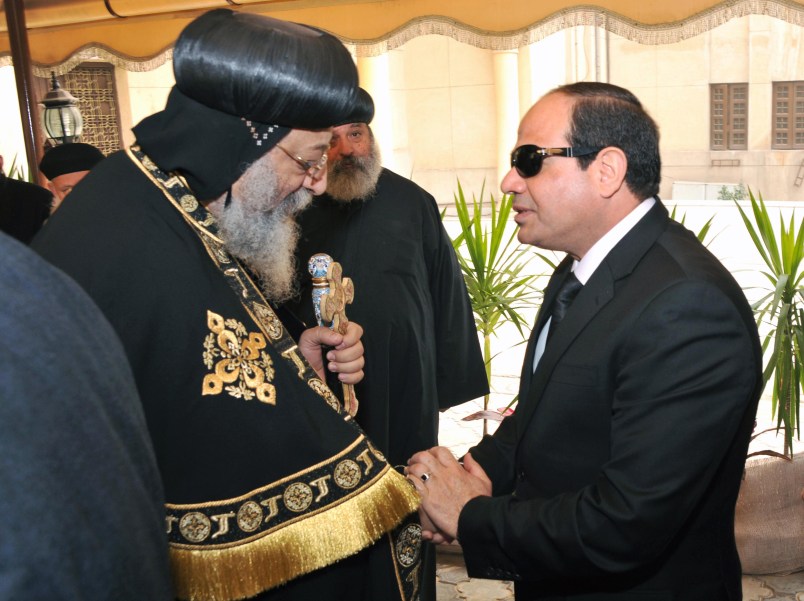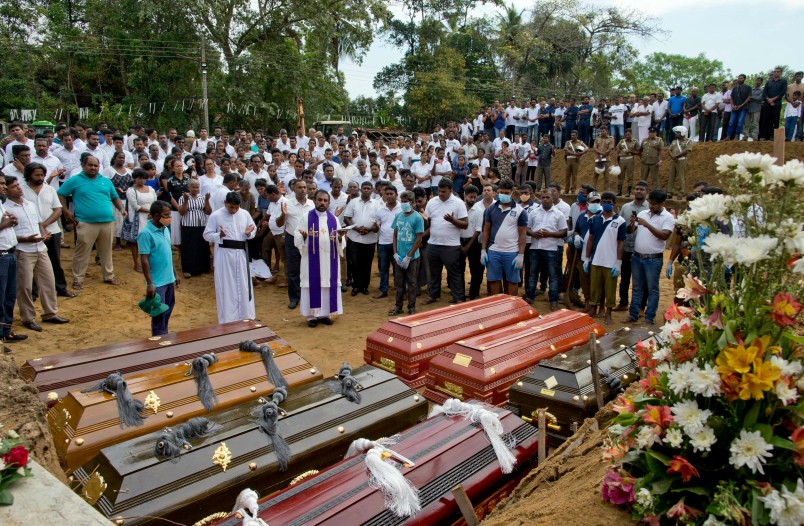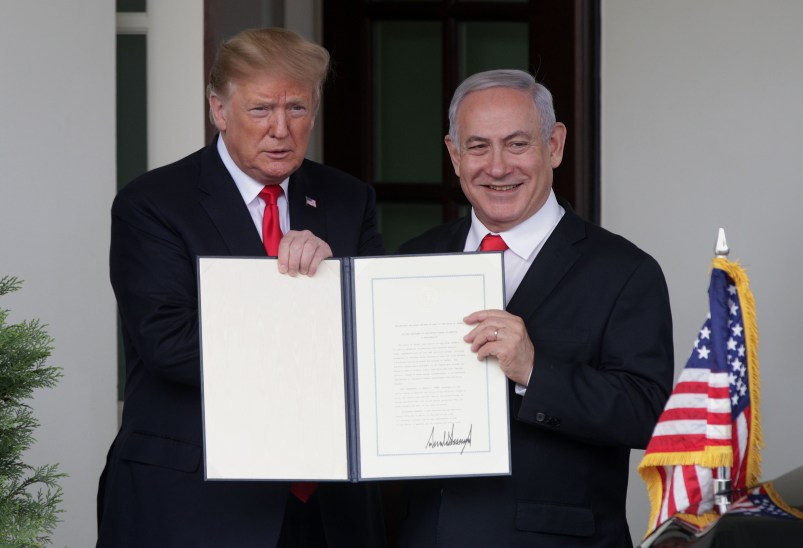CAIRO (AP) — Egyptian warplanes struck Islamic State targets in Libya on Monday in swift retribution for the extremists’ beheading of a group of Egyptian Christian hostages on a beach, shown in a grisly online video released hours earlier.
At the same time, Egypt called for international intervention in Libya against the Islamic State group. Loyalists of the Syria and Iraq-based group have risen to dominate several cities in the chaos-riven North African nation, just across the Mediterranean Sea from Italy.
After the release of the beheading video Sunday night, the tiny Christian-majority home village of more than half of the 21 Egyptians believed killed by the extremists was gutted by grief. Inside the village church, relatives wept and shouted the names of the dead in shock.
“What will be a relief to me is to take a hold of his murderer, tear him apart, eat up his flesh and liver,” said Bushra Fawzi in el-Aour village, as he wept over the loss of his 22-year-old son Shenouda. “I want his body back. If they dumped it in the sea, I want it back. If they set fire to it, I want its dust.”
The 21 — mainly young men from impoverished families — had travelled to Libya for work and were kidnapped in two groups in December and January from the coastal city of Sirte. In the video, the group is marched onto what is purported to be a Libyan beach before masked militants with knives carve off the head of each. The killing of at least a dozen of them is clearly visible, though it was not clear from the video whether all 21 hostages were killed.
On Monday morning, an Egyptian armed forces spokesman announced the strikes on state radio, marking the first time Cairo has publicly acknowledged taking military action in neighboring Libya.
The statement said the warplanes targeted weapons caches and training camps before returning safely. Libya’s air force commander, Saqr al-Joroushi, told Egyptian state TV that the airstrikes were coordinated with the Libyan side and that they killed about 50 militants.
The strikes hit four IS positions in the eastern Libyan city of Darna, an extremist stronghold that was taken over by an Islamic State affiliate last year, a Libyan security official told The Associated Press. Two Libyan security officials said civilians, including three children and two women, were killed in the strikes. The officials spoke on condition of anonymity because they were not authorized to speak to the media.
Libya’s air force meanwhile said it had carried out its own strikes in Darna, without providing further details.
It said the “intense strikes” were “to avenge the bloodshed and to seek retribution from the killers.”
“Let those far and near know that Egyptians have a shield to protect and safeguard the security of the country and a sword that amputates terrorism and extremism,” it said.
Hours later, Egyptian warplanes carried out a second wave of strikes in Darna, Egyptian security officials said, speaking on condition of anonymity because they were not authorized to speak to the media.
After the strikes, Egyptian President Abdel-Fattah el-Sissi spoke with France’s president and Italy’s prime minister about the Libya situation. He sent his foreign minister, Sameh Shukri, to New York to hold consultations with U.N. officials and Security Council members ahead of a conference on terrorism opening Wednesday in Washington.
“What is happening in Libya is a threat to international peace and security,” said el-Sissi, who also banned all travel to Libya by Egyptian citizens.
Egypt’s Foreign Ministry said the international community must adopt “immediate and effective” moves against terror groups in Libya. “Leaving things in Libya as they are without decisive intervention to suppress these terror groups constitutes a clear danger to international peace and security,” said the statement.
It also called on the U.S.-led coalition staging airstrikes against the Islamic State in Iraq and Syria to offer Egypt political and material support to counter the threat posed by the Islamic State in Libya.
Sunday’s video was one of the first beheading videos from an Islamic State group affiliate to come from outside the group’s core territory in Syria and Iraq, and displayed the sophisticated techniques used in previous videos.
The killings raise the possibility that the extremist group — which controls about a third of Syria and Iraq in a self-declared caliphate — has established an affiliate less than 500 miles (800 kilometers) from the southern tip of Italy. One of the militants in the video said the group now plans to “conquer Rome.”
Egypt is already battling a burgeoning Islamist insurgency centered in the strategic Sinai Peninsula, where militants have recently declared their allegiance to the Islamic State and rely heavily on arms smuggled across the porous desert border between Egypt and Libya.
The strikes also come just a month before Egypt is scheduled to host a major donor’s conference at a Sinai resort to attract foreign investment needed to revive the economy after more than four years of turmoil following its own 2011 uprising.
Libya, on Egypt’s western border, has slid into chaos since the 2011 uprising that toppled and killed longtime leader Moammar Gadhafi.
Islamist-allied militias seized the capital Tripoli last year, and the internationally recognized government has been confined to the country’s far east since, while Islamist politicians set up a rival government in Tripoli.
Last year, Egypt and the United Arab Emirates carried out airstrikes against Islamist-allied forces last year, according to U.S. officials.
The foreign minister of the United Arab Emirates, Sheikh Abdullah bin Zayed Al Nahyan, called the new mass killing an “ugly crime” and said it was “devoting all its resources to support the efforts of Egypt to eradicate terrorism and the violence directed against its citizens.”
He added that the killing highlights the need to help the Libyan government “extend its sovereign authority over all of Libya’s territory.”
The oil-rich Emirates, along with Saudi Arabia and Kuwait, has given billions of dollars in aid to Egypt since el-Sissi, who was then military chief, overthrew Islamist President Mohammed Morsi in July 2013 amid massive protests against his yearlong rule.
___
Michael reported from el-Aour, Egypt. Associated Press writers Maamoun Youssef in Cairo and Adam Schreck in Dubai, United Arab Emirates contributed to this report.
Copyright 2015 The Associated Press. All rights reserved. This material may not be published, broadcast, rewritten or redistributed.










What do we really know about the ISIL leadership. Their actions seem to be irrational since they invite retaliation all out of proportion to the actual harm done to Egypt. I guess they must think the benefits of film showing them killing Christians outweighs the bombs they knew they were going to endure.
I’m glad regional states are doing something. We should only support that-NOT lead it.
I was just reading about this on another site. I think the president has played this ISIL threat very well. Instead of the US leading a coalition, he’s letting it play out in a way in which Middle Eastern and African countries will lead the fight. That’s the best possible outcome that avoids us getting into yet another war in an Arab country.
It is worth noting… President Obama may be the President that, historically, shows the most patience. He has demonstrated his ability to place assets in readiness as he watches the situation and the process.
Good. The more regional players take action against ISIL, the better.